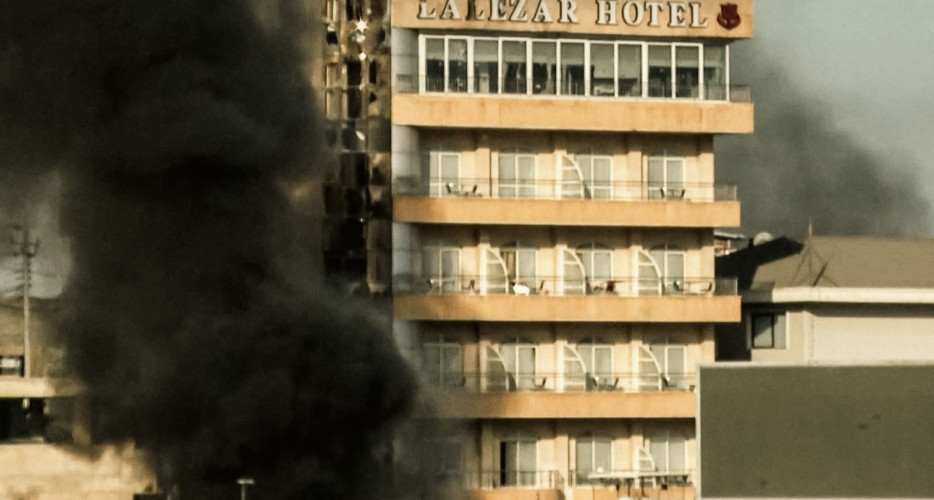Ukraine Embassy in Iraq Denies Allegations of Training Militants Linked to Lalazar Case

Peregraf
The Embassy of Ukraine in Iraq has strongly denied reports suggesting Ukrainian involvement in the training of militants or the production of unmanned aerial vehicles (UAVs) for use outside Ukraine, calling the claims "blatant disinformation."
In a statement on Thursday, the Embassy said: "Ukraine has never carried out and does not carry out any activities related to the training of militants or the production of unmanned aerial vehicles for illegal use outside our state. Such claims are false and baseless, aimed at discrediting Ukraine and its leadership."
The Embassy urged media outlets in Iraq and the Kurdistan Region to rely only on official and verified sources of information, warning against the spread of rumors and unsubstantiated reports.
The denial came after Sulaymaniyah’s security forces (Asayish) released videos of "confessions" from several detainees following last week’s deadly clashes in the Lalazar area. In the videos, some suspects claimed to "have received drone training in Ukraine" — a claim the Embassy has now categorically rejected.
Arrest Warrants and Assassination Allegations
On Wednesday, the Sulaymaniyah Asayish issued arrest warrants for Lahur Sheikh Jangi, leader of the opposition People’s Front and former PUK co-president, as well as Azhi Amin, head of the Kurdistan Regional Security Council in Erbil and former intelligence chief of the Zanyari Agency. Several other senior security figures were also named.
The warrants accuse Jangi and Amin of planning to destabilize Sulaymaniyah, including an alleged assassination attempt on PUK leader Bafel Talabani. According to Asayish, two suspects were arrested while monitoring Talabani’s movements, armed with sniper rifles and suicide drones. Authorities alleged the operation was "supervised by Lahur Sheikh Jangi."
Charges Against Azhi Amin
Security officials confirmed that Amin faces two arrest warrants issued on August 23, under Article 406 of the Iraqi Penal Code (deliberate killing) and Article 56 (conspiracy against state security). He is accused of participating in the Lalazar battle, killing civilians, and attempting acts of terrorism.
Meanwhile, during a visit by the Independent Human Rights Commission in the Kurdistan Region (IHRCR) on Tuesday, Jangi denied reports of abuse or forced "confessions". He said he was in good health, held in a private room, and allowed contact with his family.
"Since my transfer to Asayish prison in Kani Goma, I have not been subjected to violence or torture, nor forced to confess," he told the delegation, adding that he had warned international representatives of the risk of clashes before the Lalazar incident.
The Lalazar Clashes
The arrests and accusations stem from the August 22 confrontation at the Lalazar Hotel in Sulaymaniyah, Jangi’s headquarters. When security forces attempted to execute an arrest warrant, his loyalists — known as the Scorpion Force — resisted. Hours of fierce fighting left five people dead, dozens injured, and more than 100 detained.
According to investigators, 162 individuals remain in custody, while families of detainees have been granted visitation rights. The Human Rights Commission urged relatives of missing persons to contact its Sulaymaniyah office.